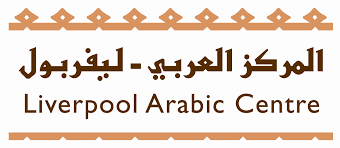Liverpool's Yemeni community stretches back well over a hundred years in the city and is one of the oldest Arabic communities in the UK and it is as old as the Somali and the Chinese communities, those other seafaring communities that settled in the city. The first wave of Yemeni migration to Britain is characterised by Yemeni men being employed aboard ships leaving from Aden to the UK, and subsequently settling in port towns. Migration to the UK began in the late nineteenth century, when many Arabs took up employment as stokers and donkeymen on British vessels and then formed communities at places like Liverpool, Manchester, South Shields, Hull, Cardiff and London. So it was that, at the turn of the 20th century, seafarers from Yemen arrived in Liverpool as they did from elsewhere across what was then the British Empire, settling in communities close to the city's ports in areas such as Park Lane in Toxteth, Liverpool 8, also often referred to as L8 due to Toxteth falling largely within the L8 postcode region and adjoining regions. These areas thus having the largest concentration of Yemenis, Yemeni-owned businesses, mosques, and 'community' organisations established or accessed by Yemenis. The first Yemenis, seamen and their families, arrived in Liverpool in the early 1900s and although the present Yemeni-origin population of Liverpool is not known, an estimated 400 Yemeni-owned newsagents are in the city. During the first lockdown, when nearly all of the shops and businesses in Liverpool were closed, only newsagents and supermarkets remained open with many run by members of Liverpool's Yemeni community, much like the grandfather of poet Amina Atiq, who came to the city in the 1950s and set up a shop on Lawrence Road near Smithdown Road. Amina, who describes herself as a Scouse-Yemeni poet, was commissioned for a thirty minute performance at the Unity Theatre as part of Dadafest, Liverpool's festival celebrating deaf and disability arts. She said, "I feel like everyone in Liverpool has a Yemeni friend or knows a Yemeni newsagent, and this is all about newsagents or shopkeepers or grocers - anyone who gets up 6am to make sure shops are open, serving in the community, if you run out of milk you've got somewhere to get it you've got no bread or coffee." Teaming up with film-maker Brian Roberts and collaborating with academic David Harrison for the film, she says using the medium of film has helped to make her work more accessible to audiences experiencing disabilities, something she is keen to support and a challenge she has personal experiences of being have experienced hearing difficulties herself.
Liverpool did not figure as much in the way of immigration as other ports did in the first and second waves of migration, and only a small number of Yemenis seem to have settled in the city in these periods as Liverpool's decline as a port city in the early twentieth century made it less attractive as a place of settlement for the first wave of seafarers. However a third wave of mostly UK-internal migration beginning in the 1970s meant that by the early 1990s, the Liverpool grouping had become
one of the largest Yemeni communities in Britain and it is reported that by 1992 Liverpool's Yemeni community flourished, and with about 3,500 members, was perhaps the largest such settlement in Britain.Those who moved to Liverpool were mainly men who gravitated to Liverpool to establish themselves also as shopkeepers serving not only their own but also the wider community. Here they became more settled, married and began to raise families.
The Liverpool Yemeni/Arabic Centre was established by locals in 1997. As Liverpool's Arabic community has grown and diversified over the years, as people also arrived in the city from Arabic communities elsewhere across the UK to work, study or set up businesses, and also those fleeing conflict and war across the middle east. The Liverpool Arabic Centre has been a crucial resource to help such families gain an understanding of city life and integrate into the wider community. With most Arabs in Liverpool of Yemeni origin, Taher Qassim, Chair of the Liverpool Arab Arts Festival says, "Liverpool is home to over 11,000 people of Arab origins – many of whom identify as Yemeni. But not many people in Liverpool know about these communities, or about what is happening in Yemen. We wanted the youth to take ownership of raising awareness of the humanitarian crisis and promoting peace. We felt it was important that the young filmmakers be of Yemeni origin themselves, so that they would feel a connection to the project." To get started, Taher and his daughter Layla worked with the chair of the local Arabic centre to identify Yemeni youth who would be interested in taking part in the project. Through the project they wanted to engage Yemeni diaspora youth from across conflict divides in a participatory process that provided them with the opportunity to develop the skills and knowledge to produce a documentary film. Together, they settled on a group consisting of two young men and three young women, all between the ages of 14-18. They then enlisted Optical Jukebox, a filmmaking agency, to help train and work with them to ensure that the process went smoothly. Youngsters involved with the centre have been compiled and edited a film about the historical links between Liverpool and Yemen called Aden Narratives.
Liverpool is 'different' to other cities as unlike other Northern English cities, many of whose Muslim
populations
are predominantly of South-Asian heritage, Liverpool is distinguished
by its strong, yet little discussed, Arab presence. It is unique in
having the dynamic of Yemenis being the largest Muslim group in
Liverpool in comparison to other UK cities.
see also :- http://www.thefootballvoice.com/2022/04/liverpool-communities-somali.html




No comments:
Post a Comment